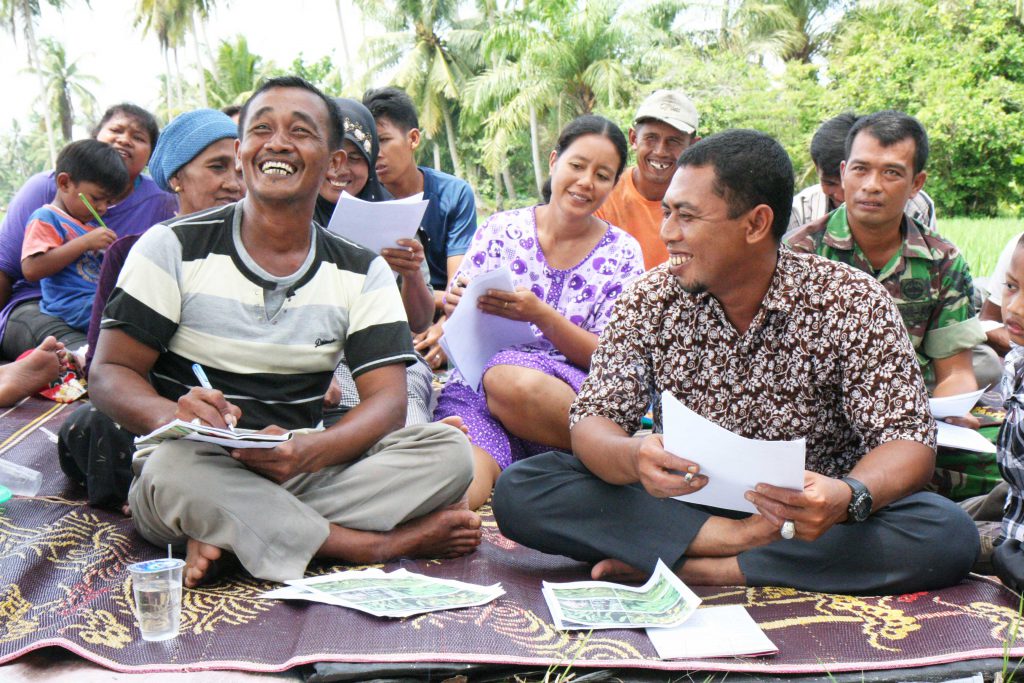When Indonesian Agriculture Ministry’s Director General for Food Crops visits a Farmer Field School in North Sumatra’s Nagur Village, Indonesia, farmers are discussing about pest and diseases they regularly spot in their rice fields among their farmer classmates. The class is part of the Better Rice Initiative Asia (BRIA), a cooperation of public private partnership and a sister project of German ASEAN Sustainable Agrifood Systems (ASEAN SAS).
“Coming to learn about the BRIA activities today is very important for both the Indonesian government and farmers,” said Dr. Hasil Sembiring at the Farmer Field School in Sedang Bedagai District. “The government encourages farmers to adopt innovative agriculture technology to increase productivity to fulfil food security for our population and the BRIA training helps us to be able to achieve the goal.”
Dr. Sembiring’s visit to the Farmer Field School is part of the monitoring activities from Indonesian government to BRIA activities as part of MOU signed between Ministry of Agriculture and GIZ Indonesia.
Farmers draw pictures of pest and diseases that they spot in their rice paddies and present to their classmates.
There are 15 Farmer Field Schools in North Sumatra and East Java under BRIA currently. Participated leader farmers exchange their traditional farming practices and experiences with BRIA Field Facilitators and in the mean time learn about innovative and environmentally friendly agriculture technology for better and higher yields to increase their profits for a long term solution for food security. The 14-topic module consists of, for instance, land preparation, seed technology, soil and nutrient management, pest management, post harvest, farmers organization strengthening as well as market access.
Each school consists of 25 farmers including female farmers, young generation farmers and community leaders. They meet approximately once a week for half a day learning one topic each time. For example, in the topic of pest and disease control and management, the day of Dr. Sembiring’s visit, farmers are assigned to work in groups to identify pests and diseases they regularly spots in the rice fields and draw pictures and make presentation to their classmates. The class discusses about the causes and symptoms and how to effectively treat them with safety.
Field Facilitator tells about pest and diseases to her student farmers at the Farmer Field School.
The participated farmers do not receive any financial supports or any incentives to attend BRIA’s Farmer Field School, but the attendance rate is up to 80 to 90 per cent.
Abdul Aziz Hasibuan, 34-year-old farmer at Nagur Village says he wants to learn about the best farming practices in this BRIA School. “I want to increase the productivity in the rice field. But I don’t have knowledge and skill. So I am interested although there is no cash incentive.”
Another farmer participant, Sugiati, 42, adds: “Knowledge is an incentive. When you have knowledge to increase productivity, cash will come later.”
Dr. Sembiring visited the BRIA Farmer Field School in Nagur Village, North Sumatra on 14 June 2015.
Story and photos by Rojana Manowalailao, ASEAN Sustainable Agrifood Systems


